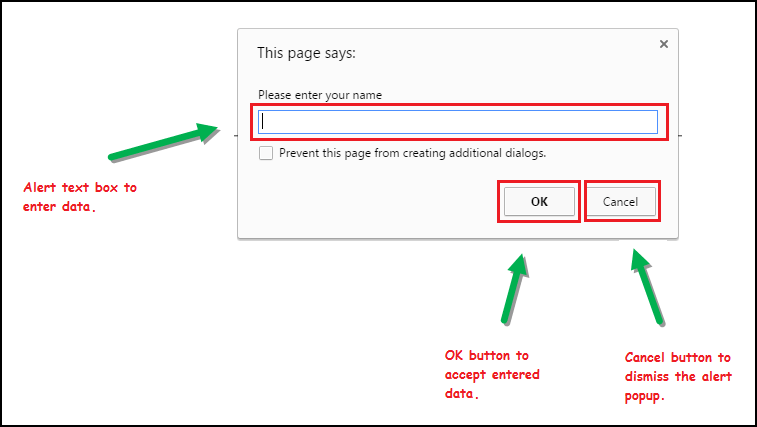
In the first place we will discuss about the types of alerts.which are trending with selenium we will see how we can handle. And how we can accept and how we can reject them, depending on all the alert types. Identically we will know About Handling Alerts Of Selenium .
more over In this blog like wise we will easily learn , what are types of Alerts are there in Selenium online training Hyderabad.
1)What is Alert?
2)about Alert interface
3)Different methods in Alerts a.alert ()
4)b.getText () c.sendKeys () d.accept ()
5)dismiss()
6)How to handle alerts in real time
first of all we will see about , what is Alert ?
1)Alert :-
correspondingly Alert is not only a little message box but also a notification.together with which will similarly appear on screen notification,further more which will give some. information to the user. or it will ask question to operate.Additionally some kind of operation as well as it is used for testing purpose.so similarly we can see About Handling Alerts Of Selenium
2)About Alert Interface :-
Alert interface shows you the below some methods which are commonly. Used in selenium web Driver.
1) void dismiss() // click the 'Cancel' button of the alert
driver.switchTo().alert().dismiss();
2) void accept() // click the 'OK' button of alert.
driver.switchTo().alert().accept();
3) String getText() // capture alert message.
driver.switchTo().alert().getText();
4) void sendKeys(String stringToSend) // send some data to alert box.
driver.switchTo().alert().sendKeys("Text");
now in the below Image you can see alert methods suggested by Eclipse.
3)Different methods in Alerts a.alert ()
1) Windows-based alerts
2) web-based alerts
As a matter of fact we know that managing windows based alerts.Uniquely web Driver capabilities first,second and third.Additionally we should work on some third party usages to handle window alerts.By this we can know About Handling Alerts Of Selenium.
Identically managing alert is one of the big challenging parts of work to auto mate while testing the web apps.
Now by the same token we will Discuss, what are web based alert, More Over in four methods we can explain web based alerts.
1) void dismiss() – The dismiss() method clicks “Cancel” button as soon as alert window appears.
2) void accept() – The accept() method clicks on “Ok” button as soon as aert window appears
3) String getText() – The getText() method returns text displayed on the alert box.
4) void sendKeys(String stringToSend) – The sendKeys() method enters specified string pattern.
4)b.getText () c.sendKeys () d.accept ()
Equally Important is that I have a session with following public instance variable
@FindBy(id="titleInput")
public WebElement titleInputBox;
Then we use page factory in constructor to start it on every use
PageFactory.initElements(driver, this);
further more In our test case to this page, we use following code to test whether text
we sent actually getting set in field ...
subtitleInputBox.sendKeys("Test");
subtitleInputBox.getText();
and in the same way we get empty string,any idea why it happens
we think it works fine
if driver.findElement()
used directly without @FindBy and PageFactory..
5)dismiss()
void dismiss() : Dismisses alert box (Simulates pressing close button of Alert)
Dismissing the Alert ;
Alert.Dismiss();
6)How to handle alerts in real time
similarly Alerts Produced by web applications.They can be easily handled by browsers.
Comparatively By this you will know What's So Trendy About Handling Alerts Of Selenium.
Click here to view Alert API Details
// Get handle to open alert, prompt or confirmation
Alert alert = driver.switchTo().alert();
Alert is interface.
There below are the types that used
//will Click OK button.
alert.accept();
// Will click Cancel button.
alert.dismiss()
//will get text which is present on the Alert.
alert.getText();
//Will pass the text to prompt Alert
alert.sendkeys();
//Is used for Authenticating by passing the credentials
alert.authenticateUsing(Credentials credentials)
By the Above Blog correspondingly you will know What's So Trendy About Handling Alerts Of Selenium and Furthermore we will Discuss in the upcoming Blogs.
Recommended Audience :
Software developers
System Admins
Project Managers
Team Leaders
Prerequisites: